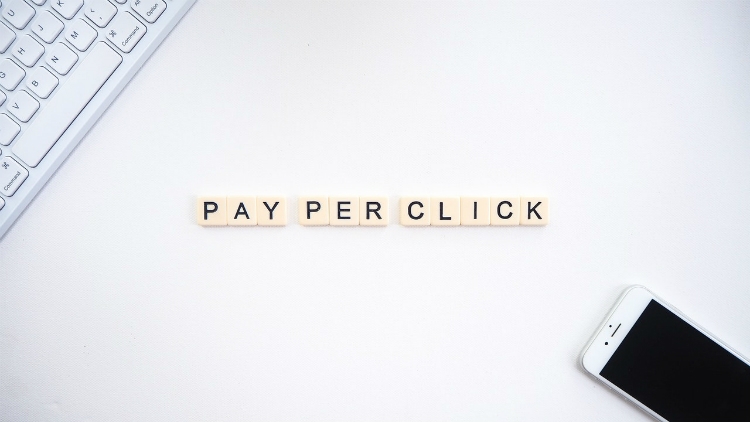Social media is a great source of traffic. No matter how you are trying to make money online, having social media will only benefit you.
All affiliate marketers know that much more can be made by promoting to the warm audience instead of a cold one.
Before people start following you on social media, they come across your content. They find it useful or interesting and follow you to see more content like that.

If you ever pitch any offer to your followers, you have a higher chance of conversation as your audience is already warm. Your followers are familiar with your content and hopefully, they also trust you.
Therefore, you should definitely have at least some social media presence. However, if you are just starting out with affiliate marketing, growing your social media should not be your priority.
With PPC, it is a little different. Advertising platforms like Facebook ads and Google ads give you so many targeting options that you can be successful even by pitching offers to a cold audience.
However, earning from PPC campaigns can be very unstable. Also, not all best affiliate programs allow you to utilize PPC.
Prioritize Your Way to Success
If you want to succeed in affiliate marketing in the long run, you need to have your own website.
Your website is your asset. It will generate organic traffic years to come. You can make money with affiliate marketing without having a website using paid ads or with social media marketing, but the difference is that you don’t have any assets.
Let’s say that you drive traffic to landing pages via Facebook ads. You are skilled at Facebook ads and you manage to make decent money. But the problem is that you are dependent on the Facebook platform.
Facebook is not going anywhere, but it is very likely that it will keep pushing prices up just like Google with Google Ads. Your profit margins then could go down or your campaigns could even stop being profitable.
Also, your Facebook account can get banned. Facebook advertising policies continuously get stricter and you need be careful about what you promote and how.
What I am trying to say is that you should always think of the worst-case scenario.

You may be making $5,000 a month with Facebook ads but if your account gets banned you go from $5,000 a month to $0.
What do you do then? You will manage to start a new Facebook account (if you are lucky) and you start over. But you will lose all your Pixel data and optimization and it will take you time to get to the point where you were making $5,000 a month.
Maybe you will never reach that benchmark again. Things will not work out for you this time.
Anytime you depend on a platform whether it is Facebook, Instagram or others, you never know what may happen.
Therefore, it is important to have your own self-hosted website which nobody can take away from you.
Another benefit of having your website is that even your old content can generate you leads and sales. Content on social media has a very short life span. You will not receive any engagement on content which is older than 3 days. Mostly your post will generate engagement only within the first 24 hours.
If you stop posting, you will stop receiving traffic and engagement. Blog posts can generate traffic passively through organic searches.
When to Focus on Social Media and PPC?
Social Media
The goal is not to tell you to abandon social media in affiliate marketing, but to emphasize the importance of prioritization.
First focus on building an asset which is your website. Create a social media account to secure your brand name but don’t spend that much time focusing on them.
You will have no visitors at the beginning anyway so why spend time on something which will not push your website forward.
Your priority should be to grow your website organically through SEO.
Once your website starts getting organic visitors and first comments on your posts, then it is the time to build your social media presence and utilize it in your affiliate marketing efforts.
PPC
Unlike with social media, your website can benefit from PPC from the very beginning.

Instead of sending people to a landing page, you can send paid traffic to the content on your website.
Using your posts as landing pages has its pros and cons. In a nutshell, as long as you capture leads within your content, it can work very well just like a normal landing page.
Traffic sent from PPS campaigns to your blog will also boost your SEO efforts. Social signals are one of the ranking factors.
Another benefit of having a blog and doing PPS in affiliate marketing is that you can run remarketing campaigns.
Conclusion: Don’t Fight the Inevitable
Using solely social media marketing in affiliate marketing can be very tempting as it is so easy to get started. The same goes for PPC if you have a budget.
Both social media marketing and PPC are great and proven methods of how to make money with affiliate marketing.
You don’t need a website to do affiliate marketing. It takes time to build and grow a website and so if you want to make money fast, then it is not the best option.
However, if you want to have a stable income from affiliate marketing, you need to have a website. It takes more effort, but it’s worth it in the long run.
About the Author

Martin is the creator of Blogging Lizard. His goal is to is to provide step-by-step instructions for beginners to set up their website or a blog. You can follow him on Pinterest.


